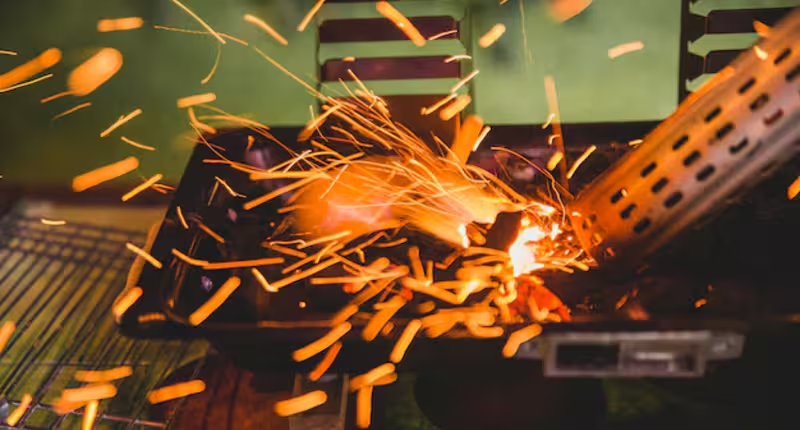The recycling of scrap metal has grown to become one of the leading industries in dealing with waste as it contributes to sustainability. The need to create effective recycling methods is growing as people are becoming more concerned about the environment. Copper and other scrap metal recycling in particular is very beneficial economically and environmentally. For those interested in the current scrap copper prices, examining the market sheds light on recycling’s increasing allure. As technology advances and global consciousness about environmental preservation grows, the horizon looks bright for the future of scrap metal recycling.
Interested in ground-up strategies to bring about change, industries, and individuals are showing an acute interest in environmental protection. The conservation of resources targeted at reclaimed materials, the cost-effectiveness of which is achieved through utilization rather than raw mining, is one key way to conserve resources, thus, diverting demand to recycling the already mined metals. It is a demanding and challenging strategic switch that not only lessens the environmental damage that occurs due to mining activities but also involves the cost-effectiveness of using already existing metals.
Key Takeaways:
- To be entirely informed of scrap metal recycling success in eco-friendliness development.
- To be conferred about the different aspects of the environmentally preferable way of scrap metal recycling.
- To be shown the recycling industry and its technologies presentations with the power of new modernistic options in them.
Table of Contents:
- Introduction to Scrap Metal Recycling
- Why Scrap Metal Recycling Matters
- Economic Benefits of Recycling Metal
- Environmental Impact and Benefits
- The Role of Technology in Recycling Advancements
- Global Trends in Metal Recycling
- Challenges Facing the Industry
- How Individuals Can Contribute
- Conclusion
Introduction to Scrap Metal Recycling
Basically, recycling of scrap metal is a practice that includes collecting and processing of rejected metal materials which are then turned into reusable forms that power various industries. This, in turn, will make it a major support of the circular economy because it will prevent waste from filling up landfills, and at the same time it will be the provider of the base materials for the manufacturing sectors. The conjunction of the environmental and economic gains is the reason why businesses are into scrap metal recycling as a way of embracing sustainable production practices.
Why Scrap Metal Recycling Matters
To put it bluntly, this year, the word “metal recycling” does not just mean waste prevention no more. Some may argue that it is an essential part of resources, particularly, in resource conservation. We all know that recycling is a major player in the health of the environment. Recycling decreases the pollution a company causes by mining and processing to make the environment still have its natural systems working effectively. Thus, it also affects the social and economic fields directly.
Economic Benefits of Recycling Metal
The economic advantages of recycling are compelling. Recycling allows industries to drastically lower production costs by substituting recycled materials for expensive raw inputs. Not only does this provide financial relief, but it also amplifies job creation across diverse sectors. From collection and processing to innovative technology development, the demand for skilled labor keeps rising, bolstering stable economic environments.
Environmental Impact and Benefits
The environmental benefits resulting from recycling are so important and impossible to summarize, they are everywhere span miles away. According to the International Energy Agency, Between recycling and mining and smelting the transportation methods used for recycling metals need far fewer energy units. These Easy Tips are About the Overall Energy Efficiency in the Process, Let Alone the Number of Pollutants in the Air or Carbon Footprint on the Whole. Hence, the rise in temperatures becomes a less and less significant threat. Together with zero landfill and pollution reduction, the recycling target becomes a hot spot.
The Role of Technology in Recycling Advancements
Technology is a game-changer for the recycling of scrap commodities as it is both better and more efficient than before. Thanks to the invention of the internet these could change the world, as well as with scrap recycling. High-tech technology such as AI and automated sorting systems has been developed to detect and sort out various metal types very quickly and with high accuracy. As a result of the development of the previously mentioned methods, we can obtain better-quality materials that can be reused in the manufacturing pipeline without any problems.
Global Trends in Metal Recycling
The global landscape of recycling exhibits an upward trajectory, bolstered by international cooperation and policy frameworks prioritized by numerous nations. These initiatives have propelled recycling rates to new heights, driving robust international exchange of expertise and technology. As countries continue to share best practices, the positive momentum in recycling is poised to gain strength, forging pathways to sustainable futures worldwide.
Challenges Facing the Industry
Despite the many benefits of recycling scrap metal, the industry still faces obstacles like challenging sorting processes and unstable market prices. A multimodal strategy is needed to address these issues, including the development of regulations that stabilize the market for recycled materials and investments in cutting-edge sorting systems. Ensuring a reliable market can help buffer against downturns, making recycling a more resilient and attractive option for stakeholders.
How Individuals Can Contribute
Individuals hold the power to make a substantial difference in recycling efforts. Simple acts such as sorting waste responsibly and consciously choosing products made from recycled materials contribute to a positive environmental impact. By fostering environmentally friendly habits and encouraging responsible consumption, individuals can collectively drive significant change, affirming personal contributions as pivotal components of a sustainable future.
Conclusion
In conclusion, scrap recycling represents a critical conduit through which sustainability initiatives can thrive. Balancing economic and environmental benefits with the potential unlocked by technological advancements, sets the stage for transformative change. By embracing the possibilities that recycling offers, communities and industries alike can champion resource conservation while laying the groundwork for a healthier world, benefiting future generations in invaluable ways.
Contact Us For More Information

